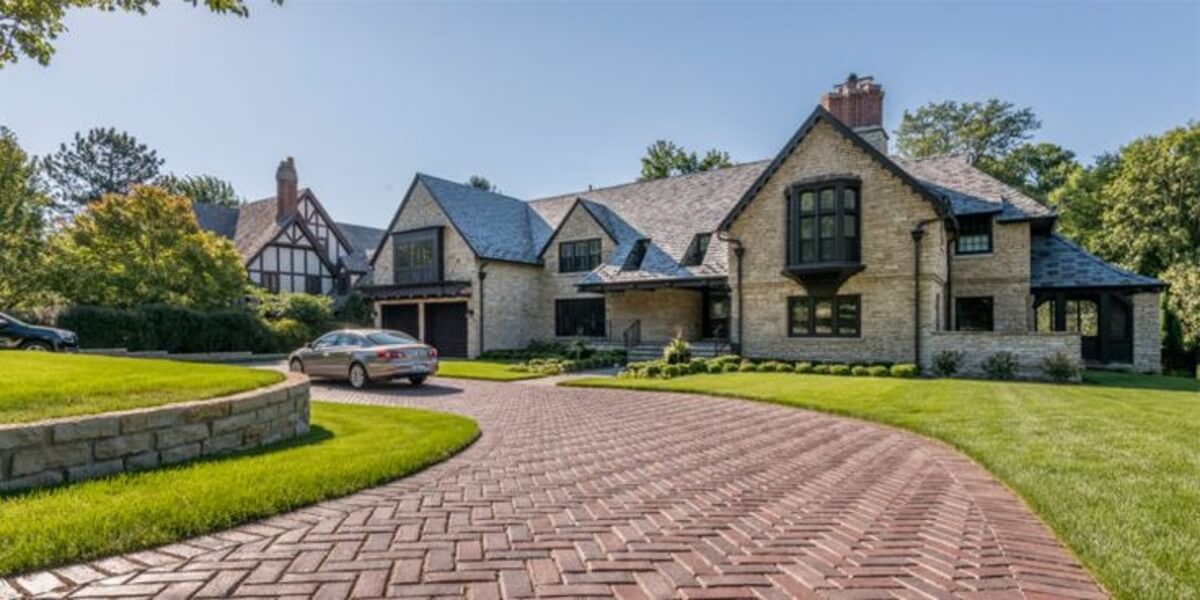Paving is the process of laying a durable surface material over an area such as a driveway, sidewalk, or patio. It’s essential for creating a stable, smooth, and aesthetically appealing surface that enhances the functionality and look of your home. Driveways, in particular, are one of the most common areas where paving is applied due to the constant foot and vehicle traffic. Whether you are considering a new installation or replacing an old, worn-out driveway, understanding paving and its importance is critical for making an informed decision.
In this article, we’ll explore what paving entails, why it is necessary for your driveway, and how it contributes to the overall value and functionality of your property.
Understanding the Paving Process
Paving involves covering a surface, typically with materials such as asphalt, concrete, stone, or brick. Each material has its own benefits, and choosing the right one depends on your budget, climate, and personal preference.
The paving process usually begins with preparing the base by excavating and leveling the surface. This ensures proper drainage and prevents future problems like cracking or sinking. Once the base is ready, the paving material is applied and compacted to create a smooth and even surface. Finally, finishing touches such as sealants or edging may be added to enhance durability and appearance.
Now that we have a basic understanding of what paving is, let’s dive deeper into why it is crucial for your driveway.
The Importance of Paving for Your Driveway
Increased Durability and Longevity
One of the primary reasons paving is essential for your driveway is its durability. A well-paved driveway can withstand heavy use, harsh weather conditions, and the weight of vehicles without deteriorating quickly. Materials like asphalt and concrete are especially known for their ability to last for years, providing a solid surface that won’t require frequent repairs or replacement.
Paving protects your driveway from natural elements such as rain, snow, and UV rays, which can cause cracking, erosion, or fading over time. Without proper paving, your driveway may suffer from potholes, uneven surfaces, and erosion, making it not only unsightly but also dangerous for vehicles and pedestrians.
Enhanced Curb Appeal
A professionally paved driveway significantly boosts your home’s curb appeal. Driveways are often one of the first things people notice about your property, and a cracked, unkempt driveway can leave a poor impression. A well-paved driveway offers a clean, polished look that enhances the overall appearance of your home.
If you ever decide to sell your property, a high-quality driveway can increase its value and make it more attractive to potential buyers. Homes with well-maintained driveways tend to sell faster and for higher prices than those with neglected or poorly maintained driveways.
Improved Functionality and Safety
Paving provides a smooth, even surface, which is essential for the safety and functionality of your driveway. Uneven or damaged driveways can pose tripping hazards for pedestrians and may damage vehicles over time due to the bumps and holes. A properly paved driveway ensures that your family, guests, and vehicles can safely navigate the area without risk of injury or damage.
Additionally, a well-paved driveway ensures proper water drainage, preventing puddles and ice formation during colder months. This reduces the risk of slips and falls and keeps your driveway usable throughout the year.
Low Maintenance
Another key benefit of a paved driveway is that it requires minimal maintenance compared to unpaved or poorly paved driveways. Materials like asphalt and concrete are relatively easy to clean and maintain. Regular sweeping, occasional washing, and sealing can keep your driveway looking new for years.
For example, asphalt driveways may require resealing every few years to maintain their appearance and protect against wear and tear. Concrete driveways, on the other hand, are low-maintenance but may require repairs for cracks over time. Regardless of the material, a paved driveway is much easier to maintain than one made of gravel, dirt, or other porous surfaces that are prone to erosion and weeds.
Cost-Effective in the Long Run
While the initial cost of paving a driveway may seem high, it is a long-term investment that pays off over time. Unpaved or poorly maintained driveways may require frequent repairs, which can add up. On the other hand, a properly paved driveway lasts for decades with minimal maintenance, making it a cost-effective choice in the long run.
Moreover, a paved driveway increases the value of your home, meaning that should you choose to sell, you may recoup a significant portion of your investment. The durability, reduced maintenance costs, and enhanced property value make paving a smart financial decision.
Choosing the Right Paving Material
When it comes to paving your driveway, selecting the right material is crucial. Here are some popular options:
Asphalt: Asphalt is one of the most common paving materials for driveways. It is relatively affordable, durable, and easy to maintain. It’s especially popular in areas with colder climates because it can withstand freezing temperatures better than other materials.
Concrete: Concrete is known for its longevity and versatility. It can be customized with various finishes, patterns, and colors, making it an excellent choice for homeowners who want a unique driveway design. However, it can be more expensive than asphalt and may require more maintenance in harsh climates.
Brick or Stone: For those who prioritize aesthetics, brick or stone driveways offer a classic, high-end appearance. While these materials are more expensive than asphalt or concrete, they provide a timeless look that adds significant curb appeal.
Conclusion
Paving is a crucial aspect of creating a functional, durable, and visually appealing driveway. Whether you choose asphalt, concrete, or another material, investing in a well-paved driveway offers numerous benefits, including increased durability, enhanced curb appeal, improved safety, and long-term cost savings. By understanding the importance of paving, you can make an informed decision that adds value and convenience to your home for years to come.








